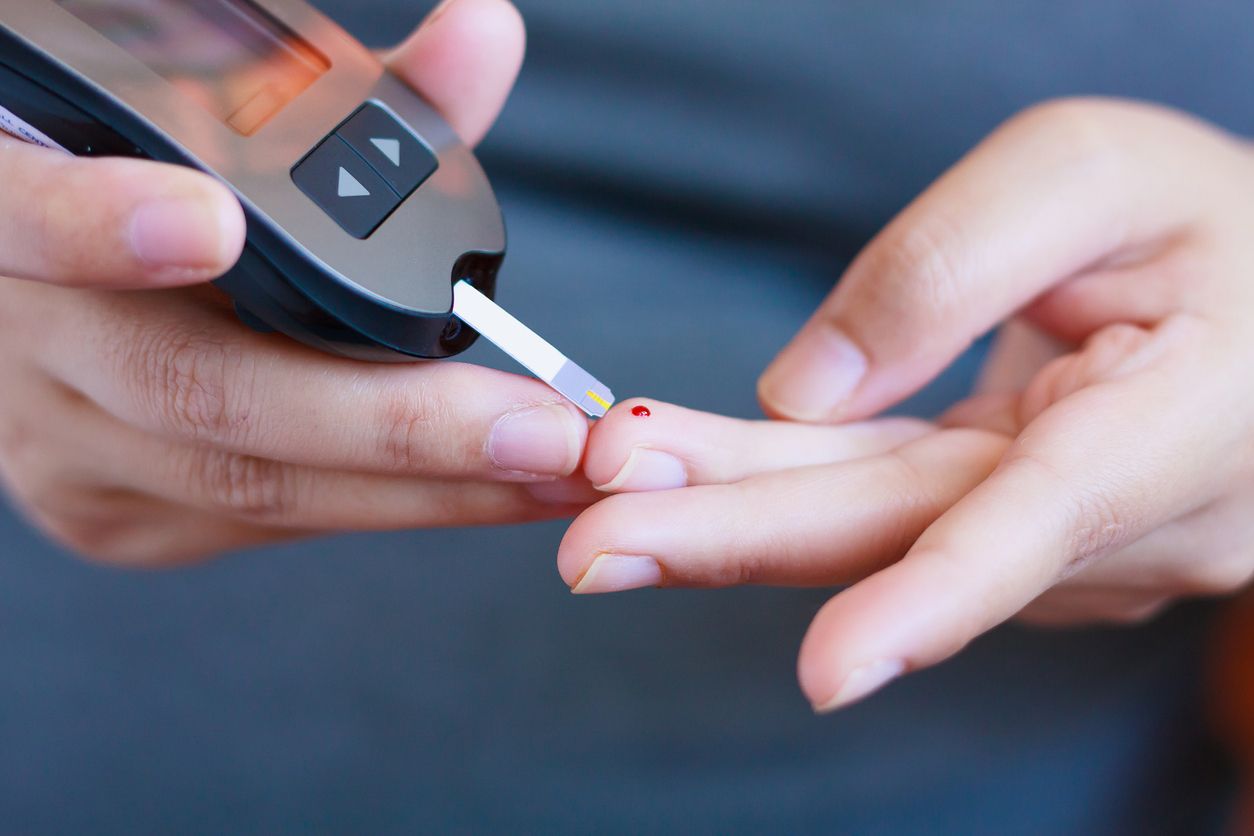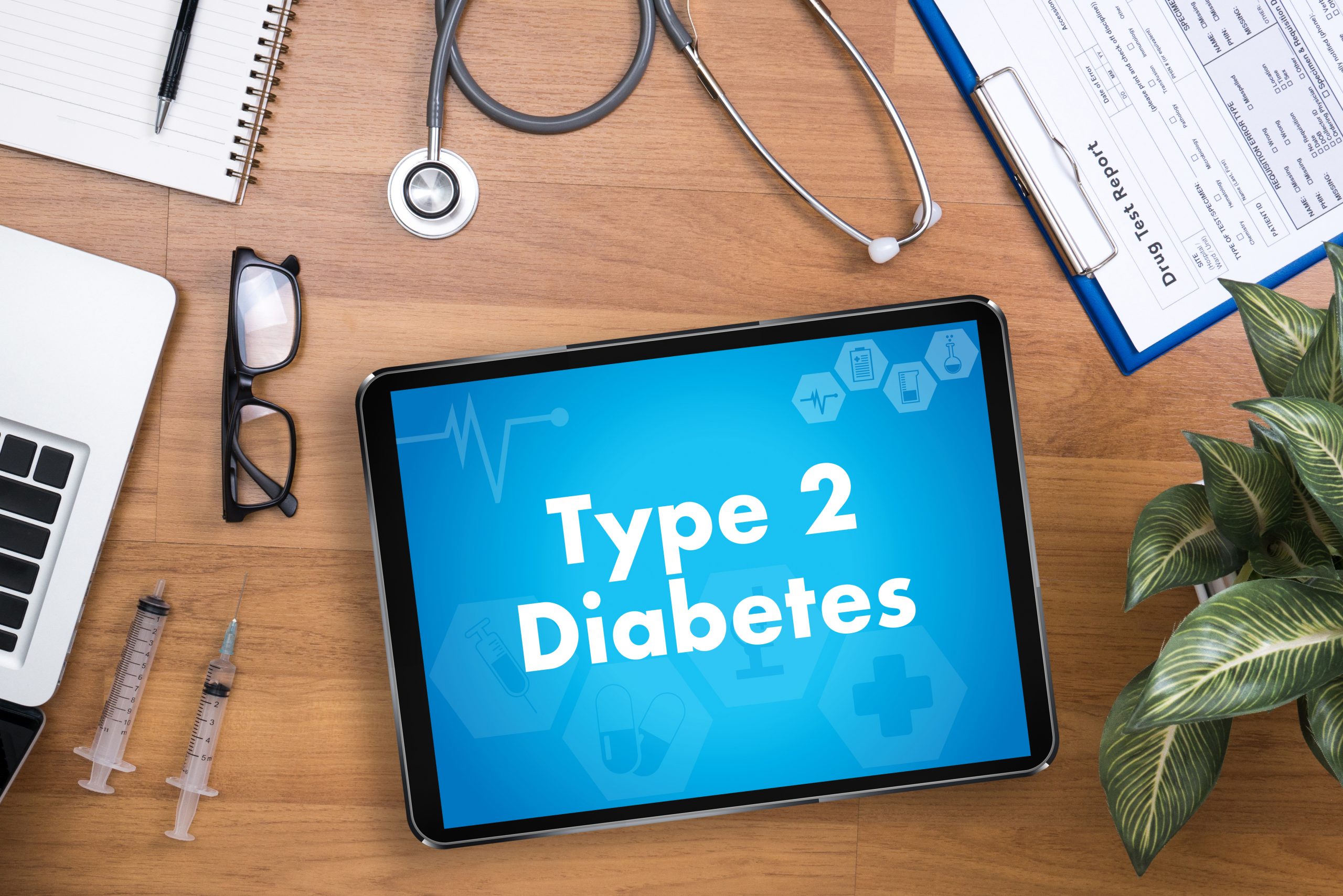How to spot the signs of type 2 diabetes in a loved one or friend

Are you concerned that a friend, partner or family member might have type 2 diabetes? Being able to spot the signs in a loved one or friend can be important, as sometimes it can take a while for the person to recognise the symptoms and signs themselves. This is because they often develop slowly over time, and the person might not even feel unwell.
By spotting the signs early you can help your loved one or friend gain back control and reduce the risk of complications.

What are the symptoms and signs of type 2 diabetes?
- Frequent urination
Needing to pass urine frequently can be a symptom of type 2 diabetes. When blood glucose is high the kidneys filter more glucose and water from the blood. This means more urine is made. Increased production of urine causes the bladder to fill more quickly, which then needs to be emptied frequently. You might notice your partner going to the toilet more frequently during the night or have a friend comment that they’ve needed to go to the toilet more often.
- Feeling thirsty
Does your loved one often mention they’re feeling thirsty, or have the need to drink more than usual? High blood glucose that comes with type 2 diabetes causes the body to make more urine. This triggers thirst and the need to drink more.
- Fatigue
Your friend or family member might tell you they’ve been feeling tired and fatigued recently. Type 2 diabetes and high blood glucose levels can zap energy and leave people feeling fatigued.
- Blurry vision
An excess of glucose in the blood can affect vision. This can be due to more glucose and water moving into parts of the eye including the lens, changing its shape and ability to focus. In addition, over the longer term high glucose can cause damage to the tiny blood vessels on the retina at the back of the eye. If your loved one or friend has mentioned they’ve been experiencing blurry vision recently, it could be important to get it assessed with the optician and doctor.
- Itching, redness and soreness
Itching, redness and soreness of parts of the body could be caused by a yeast infection. Yeast feed on glucose, and if there is more glucose around yeast infections are more likely and can be more severe. Type 2 diabetes can increase the likelihood and severity of yeast infections on the body. These tend to occur in areas that are warmer and moister such as feet (causing athlete’s foot), armpits and other skin folds, in the mouth, and the genitals (thrush).
- Slow wound healing
Type 2 diabetes can slow down wound healing. It also increases the risk of a wound becoming infected. Have you noticed a wound that is taking its time to heal, or wounds that keep getting infected? It could be important to get checked for type 2 diabetes.

Talking to your loved one or friend about type 2 diabetes
While it’s important not to play doctor, supporting your loved one or friend to seek medical advice if they’re showing several signs of type 2 diabetes might be important and helpful for them. Of course, this can sometimes be easier said than done, so here are some suggestions for approaching the conversation:
- Try not to be controlling – of course its natural to feel worried about your loved one but attempting to control their behaviour is likely to not go down well. Instead, you could try reminding them about how much they mean to you and you just want to make sure that they’re well.
- Reassure them its ok to feel nervous – visiting the doctors for a test can feel nerve wracking for many people. They might worry about the test itself, speaking to the doctor or about receiving bad news. You could offer to accompany them to the appointment, if they feel they could use support. Or you could offer to be available after the appointment, in case they would like someone to talk to.
- Remind them that type 2 diabetes can be managed – receiving a diagnosis of type 2 diabetes might be a worry for some people. To help you could remind them that type 2 diabetes no longer needs to be the chronic, worsening, progressive disease it was once thought to be. Lifestyle change, including a low carbohydrate diet, is now known to be able achieve significant improvement in type 2 diabetes. If your loved one feels open to making lifestyle changes, consider highlighting that the Low Carb Program can help, and how it can help people to achieve remission.
- Know your limits – of course, there’s only so much you can do, and you can’t force your loved one to make an appointment if they don’t want to. Instead, consider backing off the conversation and giving gentle reminders at another time when the person feels more receptive.








